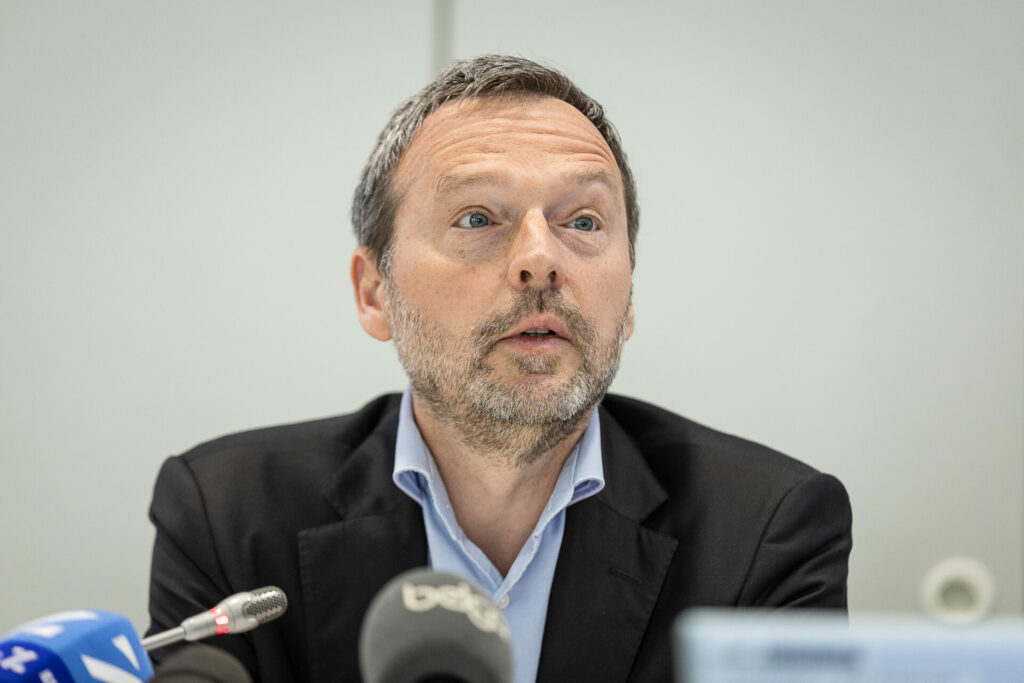Pierre Wunsch will remain as acting Governor of Belgium's central bank while the Federal Government decides whether to formally renew his five-year term, the National Bank of Belgium (NBB) has announced.
In a press release published on Tuesday afternoon, the NBB's Council of Regency – the bank's highest internal committee – said it took the decision following an official request by Prime Minister Alexander De Croo and Finance Minister Vincent Van Peteghem to extend Wunsch's term "on a temporary basis until the government takes a formal decision on his reappointment".
The Council also noted that it "deeply regrets" the Federal Government's failure to renew Wunsch's governorship prior to its expiry on 1 January and urged Belgium's political leaders to take "a decision on the appointment of a Governor as soon as possible".
"The Council of Regency stresses that the current situation is highly exceptional and that this temporary solution is suboptimal having regard to the principle of central bank independence enshrined in European law," it added.
A political impasse
Bizarrely, the failure to renew the governorship, which is typically a formality, comes in spite of the fact that "no one in the government opposes Wunsch's reappointment", according to an anonymous government source recently cited by L'Echo.
The hold-up is due to several factors, including haggling between the "Vivaldi" coalition partners over the appointment of other crucial policy positions as well as procedural difficulties in preserving the delicate linguistic balancing act required for key executive roles: according to the Finance Inspectorate, the appointment of Wunsch would tip the linguistic balance too firmly in favour of native Dutch speakers among the heads of Belgium's tax authorities.
Related News
- De Croo asks Belgium's National Bank to temporarily extend Governor's term
- A financial fiasco? Belgium's National Bank could be leaderless after New Year
Wunsch, a 56-year-old graduate of KU Leuven and Princeton University, is described by Reuters as having an "influential voice" in the European Central Bank's (ECB) Governing Council, the bank's key decision-making body. He has also been described by The Financial Times (FT) as "one of the more hawkish members of the ECB's Governing Council".
This was illustrated in a recent interview with the FT, in which Wunsch called for wages to be kept "at sufficiently restrictive levels for as long as necessary" to curb Europe's inflation rate. Despite falling dramatically over the past year, EU inflation remains 0.4 percentage points above the ECB's 2% target.
"[Inflation] is going in the right direction for some indicators but wage increases are still too high and there are no clear signs that this is slowing down fast enough," he said. "We need to see a slowdown."

